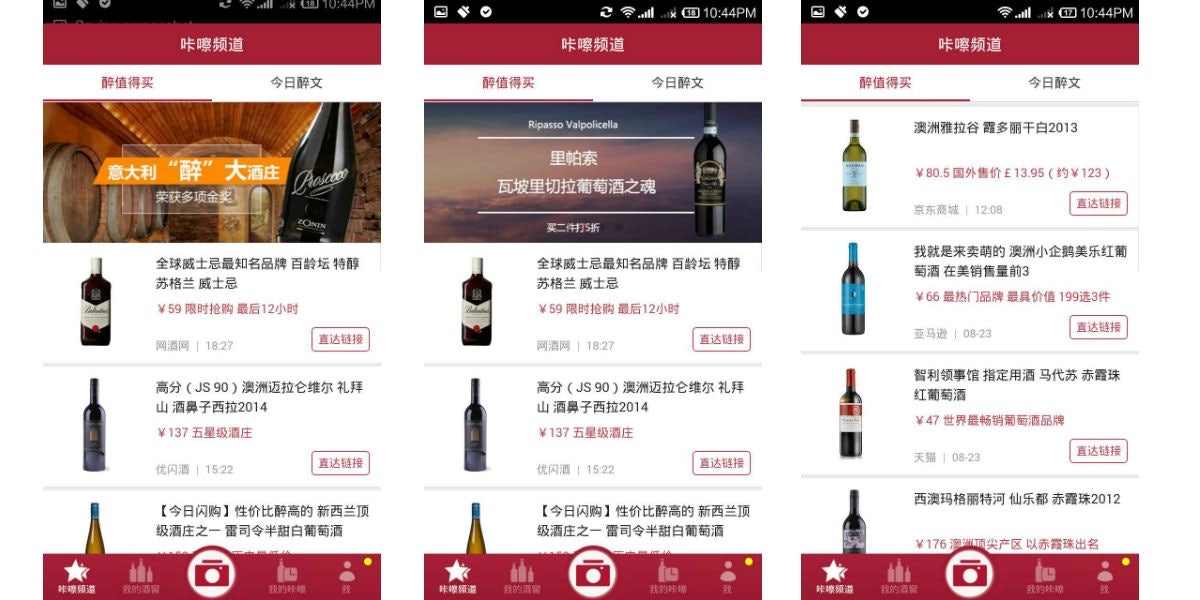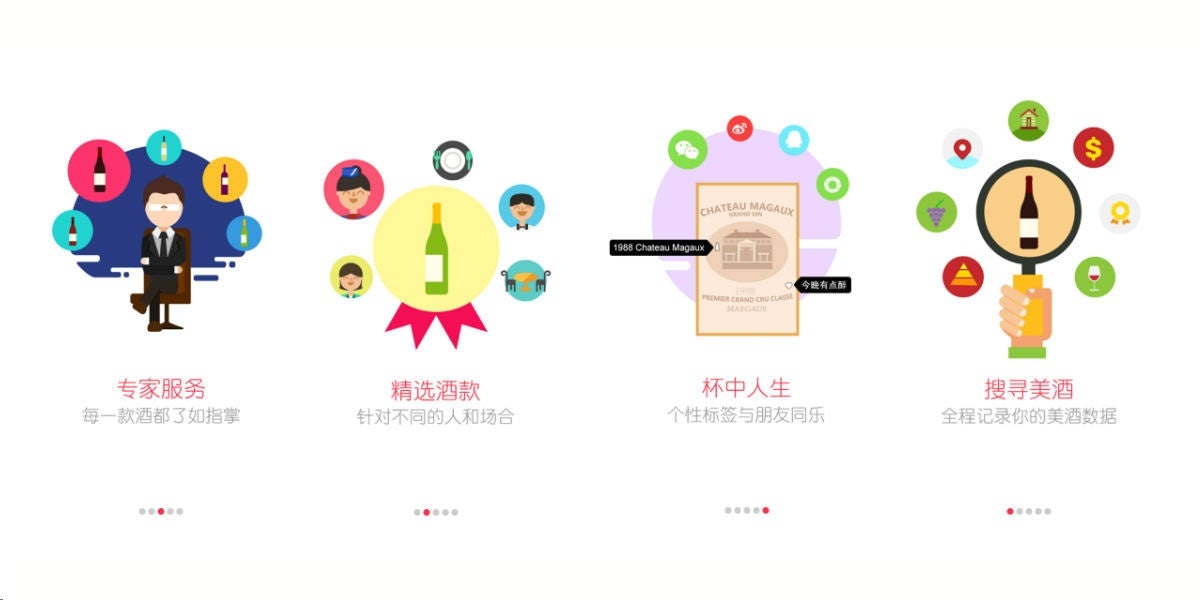For a few years now, wine lovers have had a handful of apps that let them dissect the names, numbers, and descriptions on their wine labels by simply scanning them with their phone. But as demand for wine in China continues to soar, one Chinese wine app, called 9KaCha, may become even more relevant to consumers.
At least this is what the recent actions of Haier, China's home appliances giant, seem to indicate. The company recently invested $10 million in the app because it wants to use 9KaCha's massive database and label recognition system to fuel its new smart wine cabinet that can adjust its internal settings depending on what wines are stored inside.
This technology is another sign that the market is strong for Chinese consumers wanting to become more savvy about wine. 9KaCha is one of many wine apps vying for the attention of China's wine drinkers, as well as wine marketers and educators. With the support of partnerships with WeChat and Baidu, as well as international wine organizations and local expos, the app boasts a database of more than half a million wines. Scanning a wine label with the app means getting advice on all the basic information about the wine, including pricing, company details, ratings, and flavor profile. Users can also get other insights into drinking culture, including wine pairings and the latest wine trends.

Wine enthusiasts can interact on 9KaCha by tagging their own images with tasting notes and leaving reviews on individual wines. Its Weibo page updates more than 11,000 fans with blog posts on wine in the media and tips on what to buy. The app is also is linked to a database of popular e-commerce sites for wine in China, including JD.com, Amazon, and others so that the user can compare prices and find wines within their price range before making final purchases on their phone. 9KaCha provides benefits for businesses as well—its system allows for data analysis so that brands can easily identify who is buying what and where and make more informed decisions about marketing their products.
However, 9KaCha's reach currently is outpaced by Vivino, an app founded in the United States in 2012, which claims to be the world's largest wine app with more than 18 million users. Then there's Epicurio from Singapore, which also lets users share wine reviews within a social network. In the spring, Epicurio announced plans to expand from Southeast Asia into the Chinese mainland and Hong Kong. For a global price comparison app, there's Wine Searcher. In the mainland, there's also Dr. Wine and Snapwine, plus Hesha, which pushes its social network aspect, but also includes a wine barcode scanner, plus plenty of links to e-commerce sites, with an app design that emphasizes deals on purchasing wines.
There's no doubt that with the large number of wine apps in China, consumers are getting guidance into the vast world of wine, especially as e-commerce sites invest into expanding their wine offerings to meet demand. After all, China's young wine drinkers are consuming more and becoming more adventurous with brands, so finding innovative ways for wine enthusiasts to navigate the system will no doubt continue to become more important.
